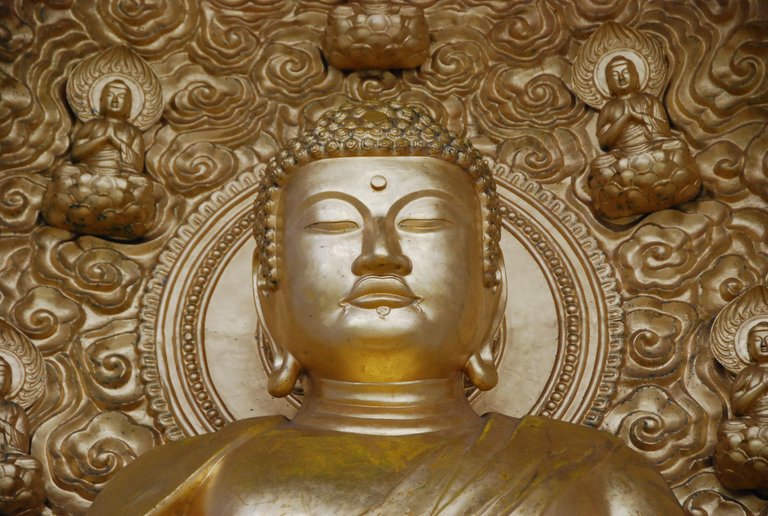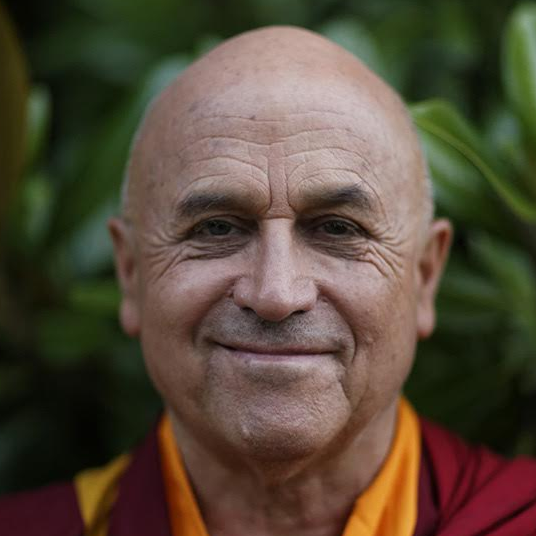
It is very, very interesting to me so see how Buddhism developed over the centuries. Different flavors of Buddhism sprung up in the East but the basic foundations were proven over and over. In the previous essay we took our first look at metta the process that has been laid out to practice compassion. Because what has been learned about the human mind let’s take another look at * metta * practice which is compassion:
- Understanding the defilements and working to overcome them
- Toward ourselves
- Toward our loved ones
- Toward people we feel neutral toward
- Toward those with whom we are having conflicts
- Toward all sentient beings

Photo by Aziz Acharki on Unsplash
The Defilements
As we can see the first step does not look like it has anything to do with having compassion. That is because it was discovered that there are negative seeds in the mind that need to be taken into consideration in various ways with the ultimate goal of ascending them. They are commonly referred to as the * three poisons * in the Mahayana tradition of Buddhism and as why we will see shortly why the three unwholesome roots in the Theravada tradition. They have loose but related translations from the Pali language to various other languages are also translated as follows:
- Ignorance
- Attachment
- Aversion
In previous essays here and here we discussed what is referred to by evolutionary psychologists and neuroscientists as the negativity bias. Scientists, mental health professionals and experts in Buddhism have come together to compare notes and say that these two worldviews converge here on this issue. Robert Wright author of Why Buddhism is True says about negativity bias and other cognitive biases:
Evolutionary psychology says that, first of all, the human mind was not designed to always see things clearly. Natural selection, in some cases, actually favors illusions, you might say. After all, all natural selection cares about or, quote, "cares about" since it's not really a conscious process, is what traits will get an animal's genes into the next generation.
If having an illusion, having a distorted view of yourself or of other people has helped get genes into the next generation, then distortion can actually be built into the human mind. Then, the other thing that evolutionary psychology tells us is it's natural, in a certain sense, that we are prone to suffering, because we're also not designed to be happy. Our happiness is not high on natural selection's agenda.
So, as we can see the discoveries of Buddhism are now confirmed by scientists that study human behavior. Scientists have also confirmed that Buddhist practices and meditation are effective in rising above and possible even uprooting these tendencies. Permanently.
The Happiest Man in the World
Matthieu Ricard is a French academic-turned-Buddhist monk who participated in a brain study that spanned 12 years and the results astonished scientists.

If you can learn how to ride a bike you can learn how to be happy ~ Matthieu Ricard
Here we are using the term “happy” as a general laymen’s term to mean “free from suffering.” In the same way some people cannot wrap their heads around “happiness is not a choice” most people would not understand “free from suffering” being used in everyday conversation so we use terms people understand in a way they understand. Buddhist “concepts” are not really concepts in the usual sense but they are shifts in consciousness that occur through the practices. The translations aren’t perfect and they make more sense with experience. One way to almost understand is like talking about peak experiences. A lot of people understand this concept because a lot of people have experienced them while playing sports, having deep experiences in conversation and other experiences.
Would we say that a mountain climber who has just conquered a a bald face on the side of a mountain whose thought process essentially has stopped and their focus has become so intense that it seems time has slowed down is happy? Probably not we would say they are having a peak experience!. I hope that illustrates a bit the difference in a shift in consciousness and the happiness we speak of in Buddhism is pointing toward more permanent shifts in feelings of well being rather than feelings that come and go depending on circumstances.
Getting back to Matthieu Ricard, what the study found was that instead of being overwhelmed by negativity bias and other cognitive biases that cloud people’s judgment his mind seemed to be overwhelmed with upbeat impulses. The Independent UK reported:
"The mind is malleable," Mr Ricard told The Independent on Sunday yesterday. "Our life can be greatly transformed by even a minimal change in how we manage our thoughts and perceive and interpret the world. Happiness is a skill. It requires effort and time."

Photo by Sebastian Spindler on Unsplash
Dealing the Three Poisons
The three poisons as recognized as the root defilements that are the causes of a host of other negative states that are refferred to as kleshas and depending on the tradition include:
attachment, aversion, stupidity, jealousy, pride, heedlessness, haughtiness, ill-will, quarrelsomeness, wrong livelihood, deceit, consorting with immoral friends, attachment to pleasure, to sleep, to eating, and to yawning; delighting in excessive talking and uttering lies, as well as thoughts of harm. ~Wikipedia
As we move along in meditation and begin to observe our thoughts it is useful to know what the kleshas are that way we can see and say to ourselves, “I see it, there it is. I am going to put in the effort to remain steadfast in my practice until this negative quality dissipates. It is not always comfortable but when we are sitting or meditating and these elements arise that is when our minds are learning we don’t have to cling to them we can let them go. In the next essay we will look at some of the practices in a more detailed way that will illustrate further how this works.
What do you think?
Recent Posts
Creative Problem Solving Through Meditation
Making Mindfulness Meditation Work For You – Part 1
Making Mindfulness Meditation Work For You Part 2 - The Noble Eightfold Path - Right View
Making Mindfulness Meditation Work For You Part 3 - The Noble Eightfold Path - Right Thought
Making Mindfulness Meditation Work For You Part 4 - The Noble Eightfold Path - Right Speech
Making Mindfulness Meditation Work For You Part 5 - The Noble Eightfold Path – Right Action
Making Mindfulness Meditation Work For You Part 6 - The Noble Eightfold Path – Right Livelihood
Making Mindfulness Meditation Work For You Part 7 - The Noble Eightfold Path – Right Effort
Making Mindfulness Meditation Work For You Part 8 – The Noble Eightfold Path – Right Mindfulness
Making Mindfulness Meditation Work For You Part 9 – The Noble Eightfold Path – Right Concentration
Making Mindfulness Meditation Work For You – The Noble Eightfold Path Part 10 – Ethics, Compassion and Wisdom
Meditation and Buddhism - What is Compassion?

@soulsistashakti is a musical artist and writer based in NYC as well as a practitioner of Buddhist teachings. You can check out my music on my FB artist page at https://www.facebook.com/soulsistashakti
I will try to read the first part then the second
Thank you for sharing that post @soulsistashakti
I look to forward to hearing your thoughts :)
I like how you tie together concepts in Buddhism and EvoPsych. It provides a broader explanation for the points you are making. Well done and thanks!
Thank you Kenny, it's the thing that kept me interested in going deeper when I would hit a wall with my understanding or interest. Recently, I've been able to go deeper than that and soon we will be going down the rabbit hole.
How far do you want to go?
lol
I watched a lot of videos about this topic
I have been watching it for years and it always make me feel balanced and connected with myself. Very powerful. @soulsistashakti
Yes as a former "seeker" this was the end of the line for me :)
I Had never read this information before thanks.
You're welcome :)
'Loving Detachment' is expounded upon quite well in Aldous Huxley's Perennial Philosophy as a chief component of Buddhist, Taoist, and many other traditions. It is a philosophical project I've earnestly undertaken. I believe it has reduced suffering in my life and according to this article, is the 'remedy' for defilement #2 .... Thank you!
Nice :)
Another great post @soulsistashakti! You are the Buddhism Wisdom of Steemit! :D
I wonder if I could make some extra cash with a side gig having people rub my belly for good luck lol
Lmao that would be a good gig! If luck turns out it would be very profitable! :D
Good content very informative thanks for sharing
@originalworks
Wow amazing post and great selection of photos. Gave you a follow. I recently wrote about a Korean meditating strategy. Check it out!
I would love to. Is it Korean buddhism?